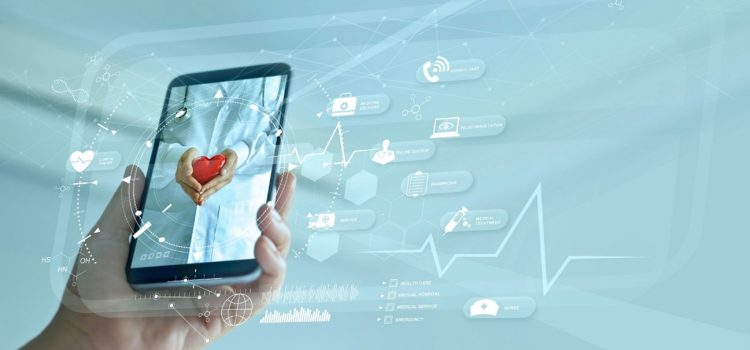
New Trends in Digital Health Platforms: Revolutionizing Patient Care
Digital health platforms are at the forefront of revolutionizing the healthcare industry, integrating technology to enhance patient care, streamline operations, and improve overall health outcomes. As we navigate through the digital age, several emerging trends are shaping the future of these platforms, offering promising solutions to longstanding challenges in healthcare. This article explores the latest trends in digital health platforms, focusing on telehealth, artificial intelligence (AI), wearable technology, patient data security, and personalized medicine.
Telehealth: Bridging the Gap in Healthcare Access
Telehealth has emerged as a crucial component of digital health platforms, especially in the wake of the COVID-19 pandemic. It enables remote consultations, reducing the need for in-person visits and making healthcare more accessible to people in rural and underserved areas. Telehealth platforms now offer a range of services, including virtual consultations, remote monitoring, and teletherapy.
The integration of telehealth into mainstream healthcare has been facilitated by advancements in video conferencing technology, mobile health apps, and electronic health records (EHRs). These platforms are not only convenient but also cost-effective, reducing the burden on healthcare facilities and enabling providers to reach more patients. As telehealth continues to evolve, we can expect more sophisticated features, such as AI-driven diagnostics and real-time health monitoring, to become standard offerings.
Artificial Intelligence: Enhancing Diagnostic Accuracy and Efficiency
Artificial intelligence is playing an increasingly significant role in digital health platforms. AI algorithms can analyze vast amounts of data quickly and accurately, aiding in diagnostics, treatment planning, and predictive analytics. For instance, AI-powered tools can detect patterns in medical images, such as X-rays and MRIs, with a high degree of accuracy, often surpassing human capabilities.
Moreover, AI is being used to develop personalized treatment plans by analyzing patient data, including genetic information, lifestyle factors, and medical history. This level of precision medicine ensures that patients receive the most effective treatments tailored to their specific needs. AI also enhances operational efficiency by automating administrative tasks, such as scheduling, billing, and patient follow-ups, allowing healthcare providers to focus more on patient care.
Wearable Technology: Empowering Patients with Real-Time Health Data
Wearable technology is another trend transforming digital health platforms. Devices such as smartwatches, fitness trackers, and biosensors enable continuous health monitoring, providing real-time data on vital signs, physical activity, sleep patterns, and more. This constant stream of data empowers patients to take a proactive role in managing their health and allows healthcare providers to monitor patients remotely.
Wearable technology is particularly valuable for managing chronic conditions, such as diabetes, hypertension, and heart disease. For example, continuous glucose monitors (CGMs) provide real-time blood sugar levels, helping diabetic patients manage their condition more effectively. Similarly, wearable ECG monitors can detect irregular heart rhythms, alerting patients and their doctors to potential issues before they become serious.

Patient Data Security: Safeguarding Sensitive Information
As digital health platforms collect and store vast amounts of sensitive patient data, ensuring data security and privacy is paramount. Cybersecurity threats are a significant concern, with healthcare data breaches potentially compromising patient confidentiality and trust. To address these challenges, digital health platforms are adopting robust security measures, such as encryption, multi-factor authentication, and blockchain technology.
Encryption ensures that patient data is protected during transmission and storage, making it inaccessible to unauthorized users. Multi-factor authentication adds an extra layer of security by requiring users to verify their identity through multiple methods, such as passwords, biometrics, or security tokens. Blockchain technology offers a decentralized and tamper-proof way to store and share patient data, enhancing transparency and security.
Personalized Medicine: Tailoring Treatments to Individual Needs
Personalized medicine is a growing trend in digital health platforms, driven by advancements in genomics, AI, and big data analytics. This approach involves tailoring medical treatments to the individual characteristics of each patient, such as their genetic makeup, lifestyle, and environment. Personalized medicine aims to optimize treatment efficacy and minimize adverse effects, leading to better health outcomes.
Digital health platforms facilitate personalized medicine by integrating diverse data sources, including genomic data, EHRs, and patient-reported outcomes. AI algorithms analyze this data to identify patterns and predict how patients will respond to different treatments. For example, pharmacogenomics uses genetic information to determine how a patient will metabolize certain medications, allowing doctors to prescribe the most effective drugs with the least side effects.
The Future of Digital Health Platforms
The convergence of telehealth, AI, wearable technology, patient data security, and personalized medicine is creating a robust ecosystem that promises to transform healthcare delivery. As these trends continue to evolve, digital health platforms will become more sophisticated, offering innovative solutions to improve patient care and health outcomes.
However, the widespread adoption of digital health platforms also presents challenges that need to be addressed. Ensuring data interoperability, maintaining patient privacy, and overcoming regulatory hurdles are critical to the successful implementation of these technologies. Collaboration between healthcare providers, technology developers, policymakers, and patients is essential to navigate these challenges and realize the full potential of digital health platforms.
In conclusion, the new trends in digital health platforms are poised to revolutionize the healthcare industry. By leveraging telehealth, AI, wearable technology, patient data security, and personalized medicine, these platforms are enhancing patient care, improving operational efficiency, and driving better health outcomes. As we move forward, continued innovation and collaboration will be key to unlocking the transformative power of digital health platforms, ultimately leading to a healthier future for all.










